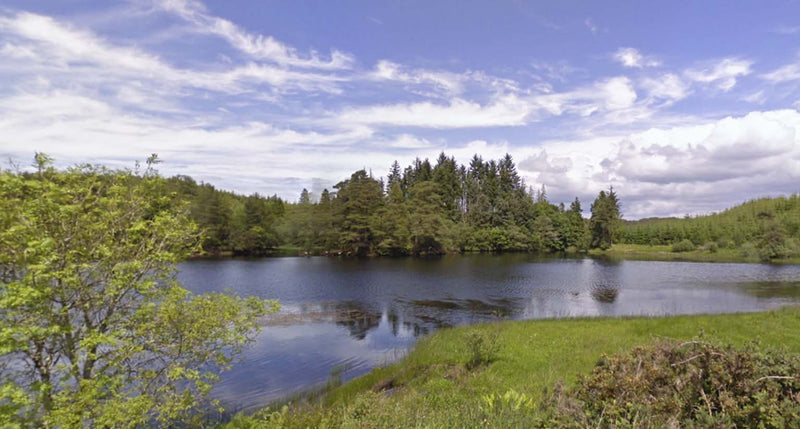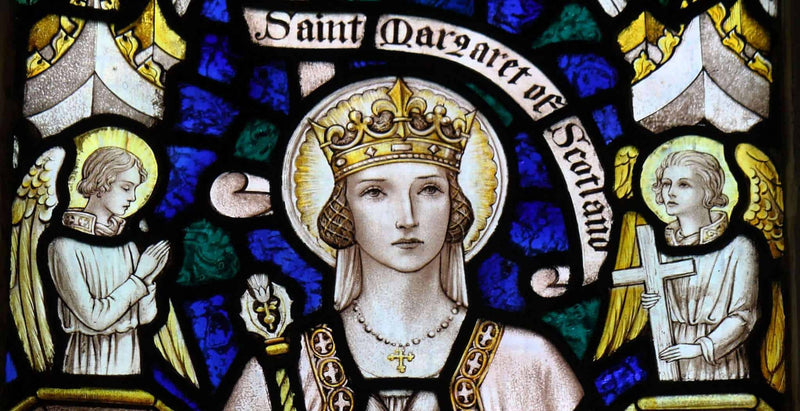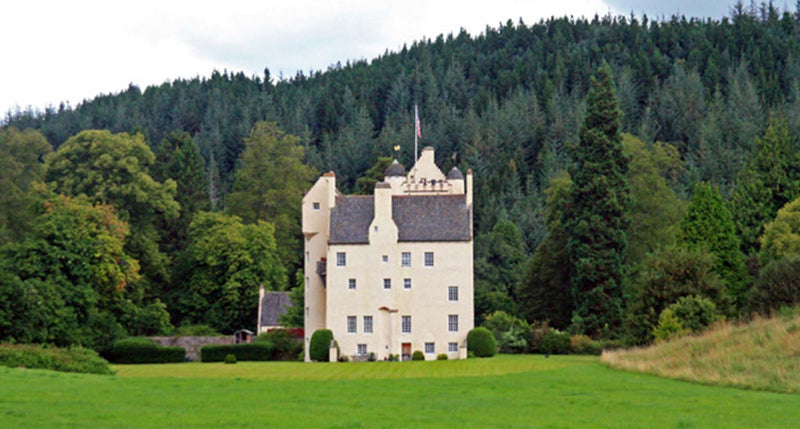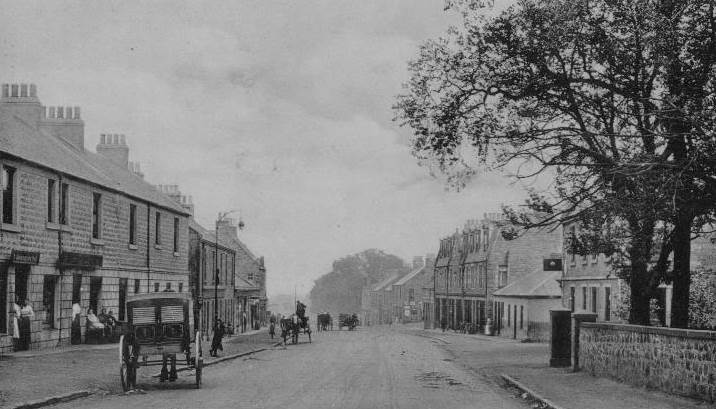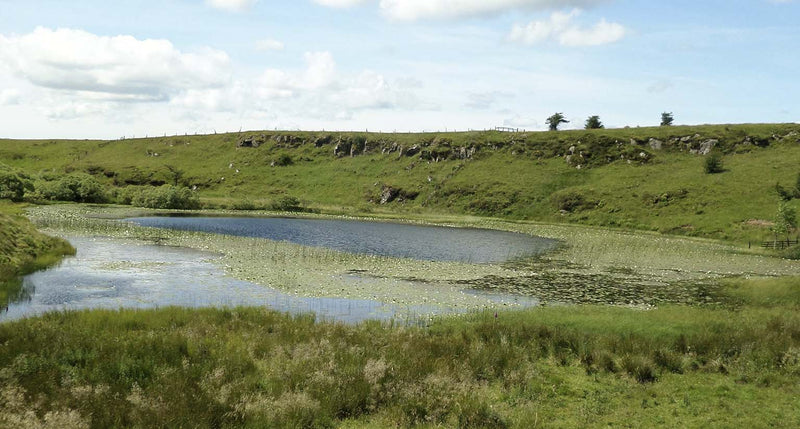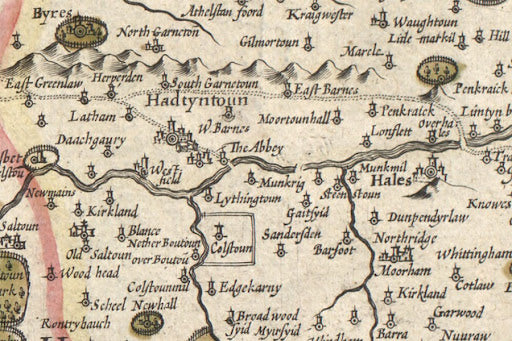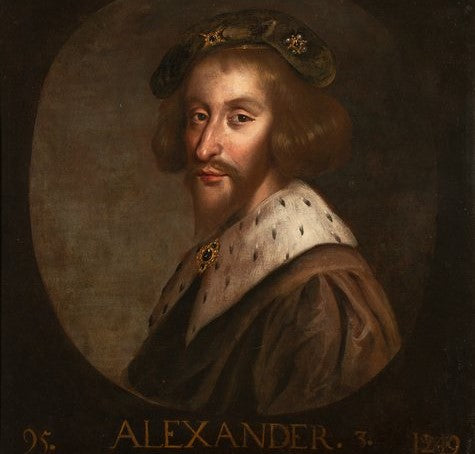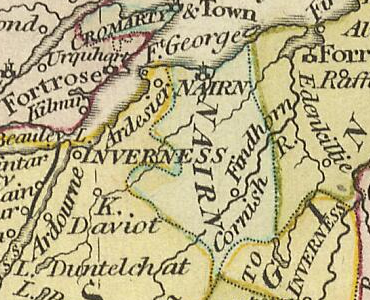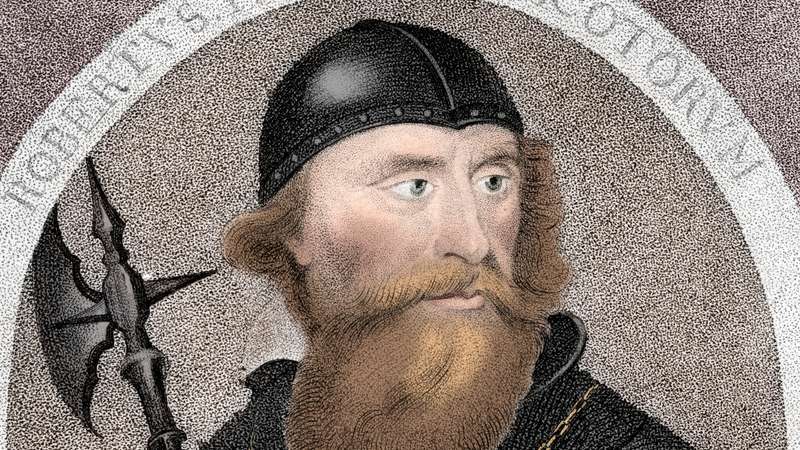The name MacTavish is derived from the phoenetic pronunciation of MacTamhais which means “Son of Tammais” (Son of Thomas). It is likely that this changed in the 17th century as English became a more common language in Scotland than native Gaelic. Many other forms of the name manifest including Thompson, MacOmish and MacCombie The clan […]
Category Archives: Clan History
The lands by Borthwick Water in Roxburghshire appear to have been the origin of the Borthwick name but the family that took it are one of the oldest in Scotland. Some suggest that they may have come to Britain with the Roman Legions, others that they may have been originally Hungarian. The more accepted assertion […]
The name Gordon is territorial and the family who took the name are believed to have been of Anglo-Norman descent, moving from the Borders to Aberdeenshire. The wild boar’s head appears on the Gordon arms because, legend says, the first Gordon saved a Scottish king from an attacking boar. The monks of St Mary at […]
The name can also be found as Binnie and Binney, and originates in the parish of Uphall, West Lothian, where the Barony of Binning was located. William de Binnin who was prior of Newbattle was promoted to Crail in 1243. John de Bynning was infeoffed in some lands in Edinburgh which had been forfeited by […]
Princess Marjorie, the only daughter of King Robert the Bruce, married Walter Stewart, High Steward of Scotland, in 1316. She was thus the mother of the first of the royal Stewarts, and received as part of her marriage settlement lands in Renfrewshire which became known as Terre de Marjorie, later Marjoribanks. The name is pronounced […]
Also found as Byers and Buyers, the name is derived from the old barony of Byres in East Lothian. John de Byres appears as a monk of Neubotle in 1309. Thomas de Byris owned a tenement in Edinburgh in 1392 and in 1534 Thomas Byres was admitted burgess of Aberdeen. George Byris and Thomas Byris […]
This name derives from the lands of Dunlop in Cunningham, Ayrshire. The original meaning was the fort (dun) at a muddy place (Lapach) from the old, pre-10th century Gaelic. The Dunlops remained in this area since around the 13th Century. The name was pronounced locally as locally as Dulap or Delap. It was also sometimes […]
The name comes from Caithness, its original form being ‘Caldell’. Hugh de Cadella was a French Knight created Thane of Calder, now known as Cawdor, in Nairn. Hugh de Kaledouer witnessed a charter by William the Lion at Montrose between 1178 and 1198, and also the gift of a toft in Forfar to Willelmus de […]
The name derives from the Anglo-French ‘brise bane’ meaning ‘break bone’ or ‘bonebreaker’. The first of the name in Scotland is William Brisbone who is among the list of archers sent from Berwick to Roxburgh in 1298 and who was most probably an Englishman. Thomas Brisbane had a charter of Litill Rothy in Aberdeenshire from […]
This surname was common in the Borders, and the head of the Trotter border clan was Trotter of Prentannan, Berwickshire. The name can also be found in northern England, and is especially common in County Durham. One of the oldest Trotter families, the Trotters of Mortonhall, in the south of Edinburgh, are said to date […]

